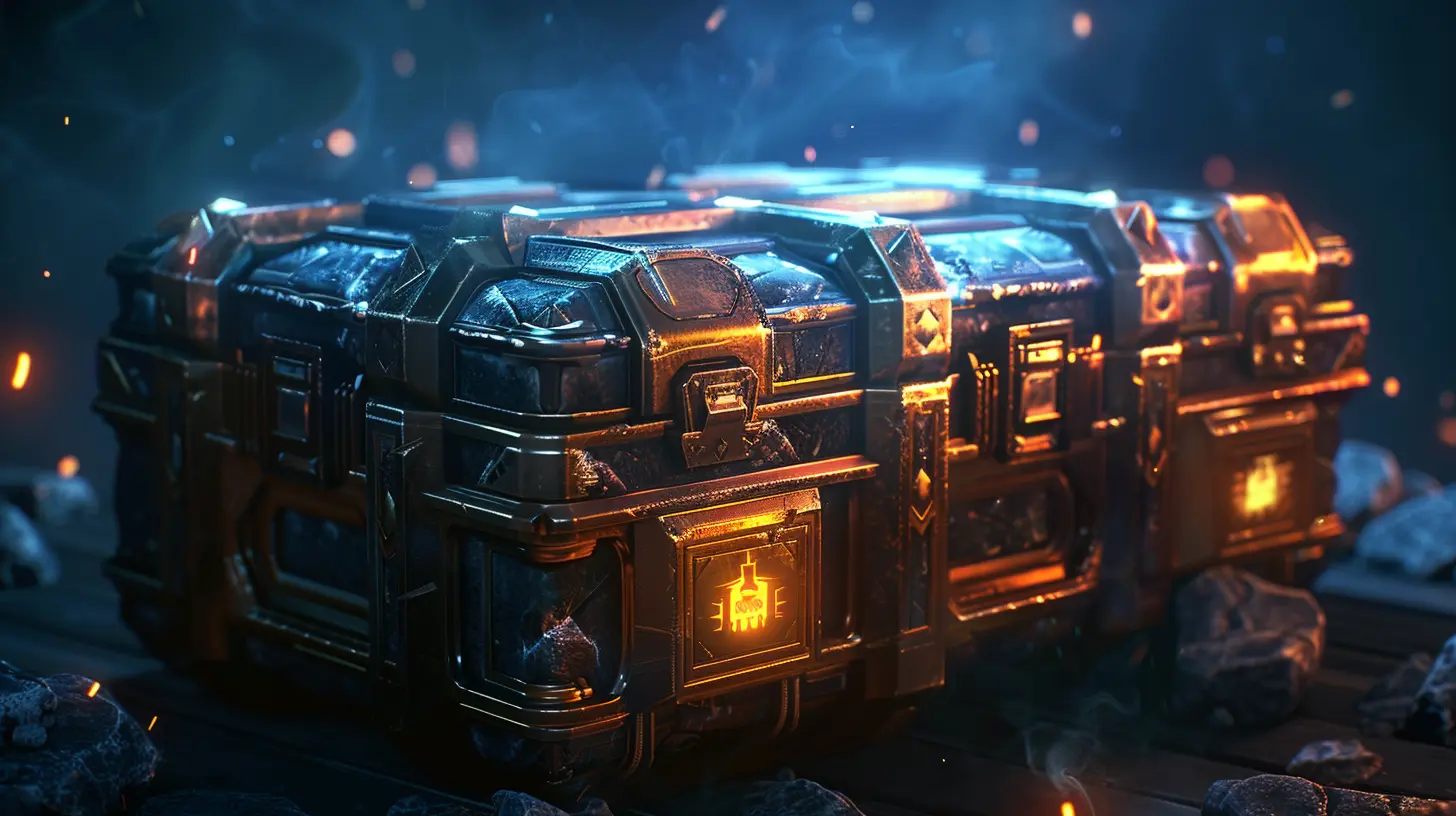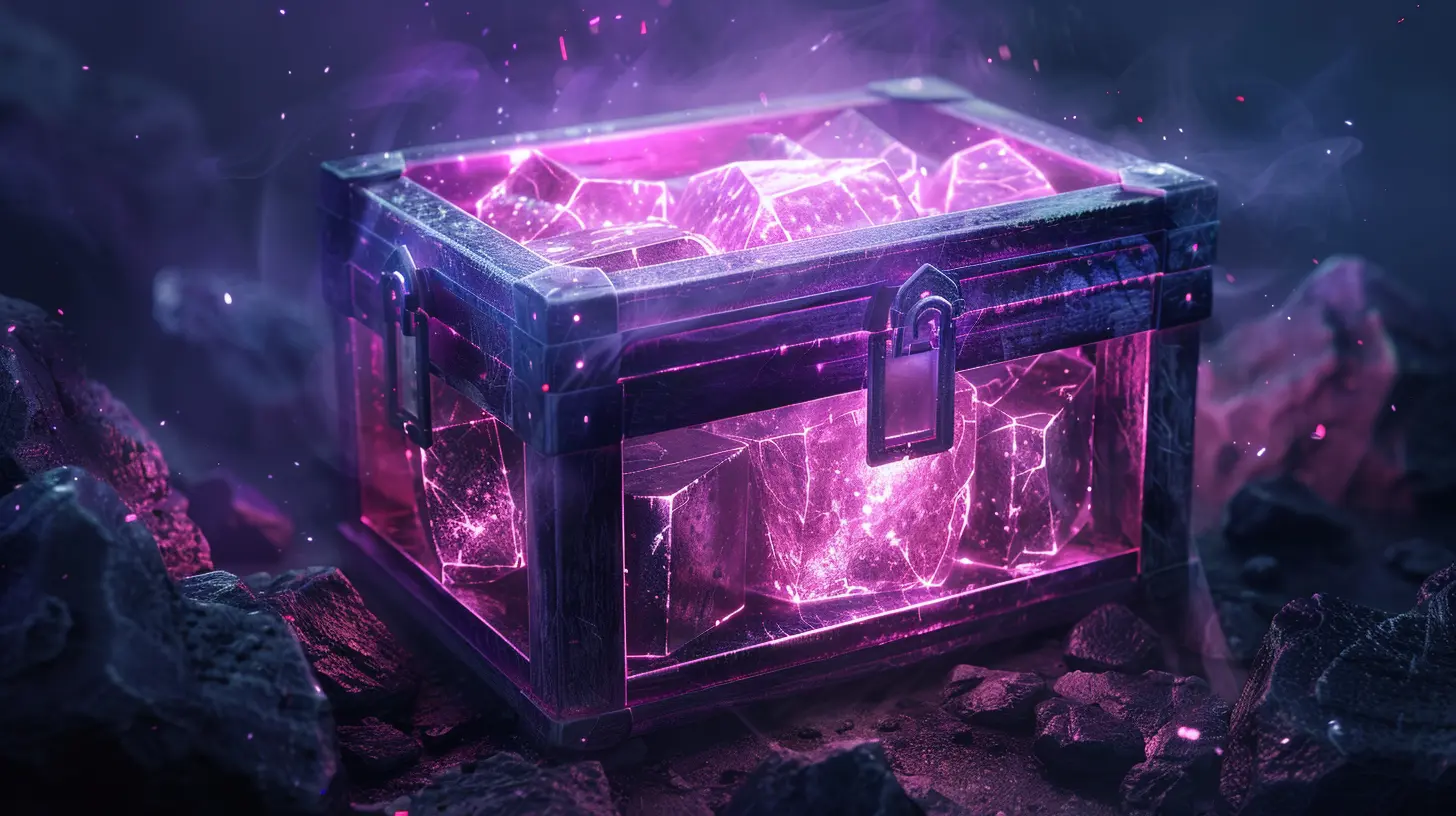The Role of Loot Boxes in Esports
26 November 2025
If you've been gaming for any length of time, you've probably cracked open a loot box or two. Maybe you were chasing that rare skin, or maybe you just wanted something new to spice up your loadout. Now, loot boxes aren’t just part of casual gaming—they’ve weaved their way deep into the world of esports. But what does that mean for players, spectators, and the future of competitive gaming?
Let’s peel back the layers and dig into the role loot boxes play in esports. We’ll cover how they impact the scene—from monetization to player engagement, controversies around gambling mechanics, and what the future might look like.

What Are Loot Boxes, Anyway?
Alright, if you’re new to the party, let’s quickly go over what loot boxes are.A loot box is basically a virtual grab bag. You shell out some in-game currency—either earned or bought with real money—and in return, you get a random assortment of items. These could be cosmetic items like skins and emotes, or, in some games, actual in-game advantages.
Think of it like opening a pack of trading cards. You might get something awesome… or a bunch of duplicates you don’t really care about. It’s equal parts excitement and frustration, which is kind of the point.

Loot Boxes and the Esports Ecosystem
Now, let’s shift gears and talk about the connection between loot boxes and the esports landscape. Believe it or not, they play a pretty big role in the competitive scene—both directly and indirectly.1. Revenue Generation
Loot boxes are a money-making machine for developers. Games like Overwatch, CS:GO, and FIFA make millions off loot box-based microtransactions. That money doesn’t just line the pockets of devs—it often flows into the esports scene itself.Tournaments, prize pools, event sponsorships—some of this is funded by the revenue pulled from loot boxes. So, when players buy into loot boxes, they’re indirectly fueling the growth of esports. It's a bit like buying a jersey to support your favorite team—you get something cool, and you're helping the scene thrive.
2. In-Game Economy & Viewership Engagement
Let’s take CS:GO as an example. The game has built an entire cosmetic economy around loot box items like weapon skins. Some of these skins are so rare and visually stunning that they’ve become collector’s items, with players dropping thousands of dollars for ultra-rare drops.This has a trickle-down effect in esports. Major tournaments often see spikes in viewership, not just because of the competitive action, but because of loot drops tied to watching streams. Valve even incentivizes watching matches with the possibility of earning rare in-game items.
So, loot boxes actually keep fans more engaged. Who doesn’t love the idea of scoring a sweet skin just by tuning into a high-stakes final?
3. Player Motivation and Cosmetic Bragging Rights
Many esports pros don’t care about in-game cosmetics on the surface—they’re focused on winning. But some do enjoy flexing their skins, especially in games where personal branding plays a role. After all, when you’re being livestreamed to thousands (or millions) of fans, how you look matters.Loot boxes help build that cosmetic arsenal. They also give casual players a reason to keep playing the game, even if they’re not going pro. That creates a larger, more passionate player base, which gives esports more room to grow.
4. Sponsorship Integration and Brand Collaborations
Here’s a fun angle: loot boxes have started hosting branded items. Think special edition skins tied to brands, pop culture references, or major esports teams. This opens up another layer of monetization—and visibility—for sponsors and organizations.When players unlock a limited-edition branded skin during a major esports event, it creates buzz. It’s like merchandising, but completely digital.

The Dark Side of the Loot Box Craze
Okay, loot boxes aren’t all sunshine and rare skins. There’s been a ton of backlash, especially around the idea that they’re a form of gambling. And when real money gets involved in a system based on randomness, things can get murky—legally and ethically.1. Gambling Concerns
Probably the biggest controversy surrounding loot boxes is their similarity to gambling. You pay money for a chance to win valuable virtual items. That’s not too different from pulling a slot machine.This becomes especially concerning with minors playing these games. Governments across the world—Belgium, the UK, Australia—have started cracking down on loot box systems, classifying them as gambling or putting strict regulations in place.
In esports, this scrutiny threatens the sustainability of some games. If a game’s economy is built around loot boxes and they get banned in major markets, it could seriously impact the esports ecosystem tied to that game.
2. Pay-to-Win Dynamics
Not every game keeps loot box contents purely cosmetic. FIFA’s Ultimate Team mode, for example, lets players buy packs that include actual competitive advantages—better players, higher stats, etc.This can skew fairness in competitive modes and even influence esports integrity. If success becomes about who can afford more loot boxes, it starts to undermine the skill-based nature of esports.
Sure, most top-tier tournaments use controlled rosters or balanced settings, but the perception of pay-to-win can still hurt a game’s reputation—and its competitive legitimacy.
3. Skin Gambling and Black Market Economies
Let’s talk CS:GO again. While the in-game loot box system is technically legit, it’s given rise to third-party gambling sites where skins are traded, bet, and gambled—often by underage players.Valve has taken steps to crack down on these markets, but it just shows how quickly loot boxes can spiral into unintended territory. When these black markets gain traction, they muddy the waters of esports, risking the integrity of the scene and prompting legal headaches.

Balancing Fun and Fairness: A Tightrope Walk
So, where do we go from here? Honestly, it’s about finding balance.For Developers:
Game creators need to tread carefully. They have to make loot boxes exciting and rewarding—but not exploitative. Transparency is key. Some games have started showing drop rates, or moving toward battle pass systems that offer clearer paths to rewards. That’s a good start.For Esports Organizations:
Teams and tournament organizers should push for games that offer fair competition. When the game is clean, the competition is exciting. If loot boxes start affecting balance or fairness, it’s worth raising concerns.For Players:
Gamers should stay informed. Know what you’re paying for, understand the odds, and don’t fall into the trap of thinking the next box will “definitely” have that ultra-rare skin.Remember, supporting your favorite game doesn’t have to mean maxing out your credit card.
The Future of Loot Boxes in Esports
It’s safe to say loot boxes aren’t going away completely—but they are evolving.We’ll likely see more regulation, more transparency, and more creativity in how games use them. Developers might lean into cosmetic-only rewards or use hybrid systems—like Fortnite’s battle pass—that still generate revenue without that gambling feel.
In esports specifically, loot boxes might remain a key part of engagement and monetization, but with bigger guardrails to keep things fair and legal.
There's also a push toward rewarding spectators and fans in more meaningful ways. Loot box drops tied to esports events, Twitch viewership bonuses, or limited-time content during championships might become the norm—bridging the gap between casual players and hardcore fans.
Wrapping It Up
Loot boxes are one of those gaming features everyone has an opinion on. Some love the thrill, others hate the uncertainty. But when it comes to esports, their role is complex. They support the industry financially, help drive player engagement, and offer cool cosmetics that add to the game’s culture. But they also come with serious concerns—gambling risks, fairness issues, and shady third-party markets.The key? Balance.
If developers, players, and regulators can work together to keep loot boxes fun and fair, they could remain a valuable piece of the esports puzzle. Otherwise, we might see them slowly phased out in favor of more transparent and ethical systems. Either way, the loot box story in esports is still being written.
And that’s what makes it so fascinating.
all images in this post were generated using AI tools
Category:
Loot BoxesAuthor:

Pascal Jennings
Discussion
rate this article
1 comments
Kade Morris
This article offers an insightful perspective on the impact of loot boxes in esports. It effectively highlights both the potential benefits and challenges they pose, fostering a thoughtful discussion about their role in the gaming community. Great read!
December 3, 2025 at 5:21 PM

Pascal Jennings
Thank you! I'm glad you found the article insightful and that it sparked important discussions about loot boxes in esports. Your feedback is much appreciated!


